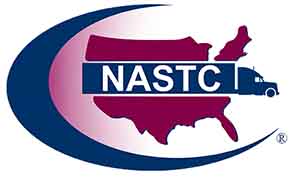
— December 1, 2022 —
Savvy carriers keep factoring and fuel agreements
separate so they can keep control of their company.

One of the biggest reasons owner operators and small fleet owners alike go into business for themselves is to control their own destiny. With freight rates dropping and fuel prices at all-time highs, carriers are sharpening their pencil on their biggest expenses to operate in the black. Fuel and factoring are at the top of that list.
A fuel discount of 25 cents a gallon can translate into $3,000 annual savings per truck. .25% off factoring fees can save about the same. There is an allure to bundle factoring and fuel thinking it will save lot of money, but it comes with hidden risks that carriers should carefully consider.
Bundling fuel and factoring means the carrier loses
the ability to change one without impacting the other
Here are some points to consider:
- If the carrier stops using the bundled fuel provider because routes change, the contractual lever is pulled, and the factoring rate increases.
- Once factoring and fuel are bundled, the carrier loses the ability to easily change their fuel provider without having to also tackle a cumbersome factoring buyout. Truth be told, it’s a lot more difficult to change factoring companies than it is to change fuel providers.
- To control costs, carriers look for a factoring agreement that allows them the freedom to pick and choose the accounts they factor on an as-needed basis. With bundled contracts, this flexibility is impacted as emphasis shifts to funding the fuel account. The result is more invoices are factored than needed.
- Contractual minimums can make it very difficult to calculate exactly what is being paid for each service individually. When carriers lose visibility of true expenses it’s difficult, at best, to determine load profitability.

According to Hunter Owen, the National Association of Small Trucking Companies’ (NASTC) Vice President of Sales and Marketing, “The factoring agreement is one of the most complicated contracts a carrier will ever sign. Carriers who plan to stop factoring someday should not have a fuel program predicated on factoring. The carrier’s chances of ever being able to leave the factor will be much less if the deal is bundled.”
Untangling the bundle is a headache and extremely time-consuming and disruptive process that can be avoided.
Here are a few red flag clauses to identify potentially problematic bundled factoring and fuel agreements:
- Factor agreement requires ongoing factoring in order to receive fuel discount. Factor and/or fuel provider is authorized to take shortages from the other account to offset.
- Fuel provider is authorized to share all carrier account information with factor including information relating to the invoices submitted to factor, account status, current account balance and account history.
- Fuel provider has the immediate right to demand the factor forward all funds due to carrier to the fuel provider.
- Any monthly minimum factoring stipulation.
Keep the financial control of your company in your hands.
Given how quickly things can change, it’s best to negotiate factoring and fuel discounts independently and keep the financial control of your company in your hands, not your factoring company. It’s important to note, the small independent carrier can benefit from great discounts without the need to leverage their company. In fact, bundling of factoring and fuel was designed to benefit the carrier who does not qualify for fuel credit on their own. Those carriers’ options are limited to cash deposit, or factor-funded fuel accounts. Conversely, carriers with established credit can negotiate each deal independently thus circumventing the contractual levers involved with bundling.
Another way to avoid bundling is to join the National Association of Small Trucking Companies (NASTC)
NASTC is dedicated to helping small trucking companies control their costs and save money. NASTC has partnered with Orange Commercial Credit (OCC) for factoring for over 18 years. Together they provide the small independent carrier the most competitive pricing on factoring and fuel while keeping the contracts separate. This allows the carrier to adjust each relationship independently as needed so they can always make the best decisions for their company.

Andrea Rogers is Vice President of Orange Commercial Credit (OCC) and has helped over 500 companies grow by achieving steady cash flow and financial stability through factoring. OCC has 40-plus years' experience funding transportation companies. More than 35% of OCC's new business is client referrals.

